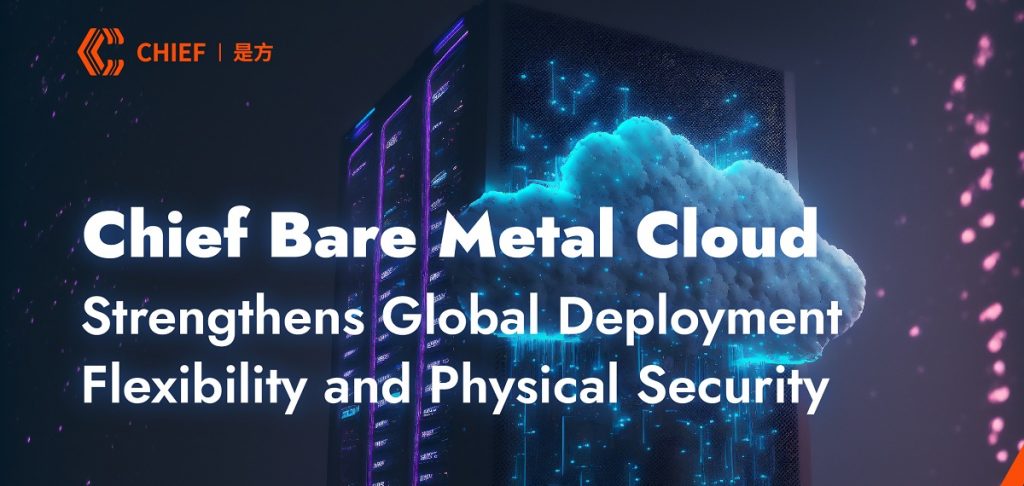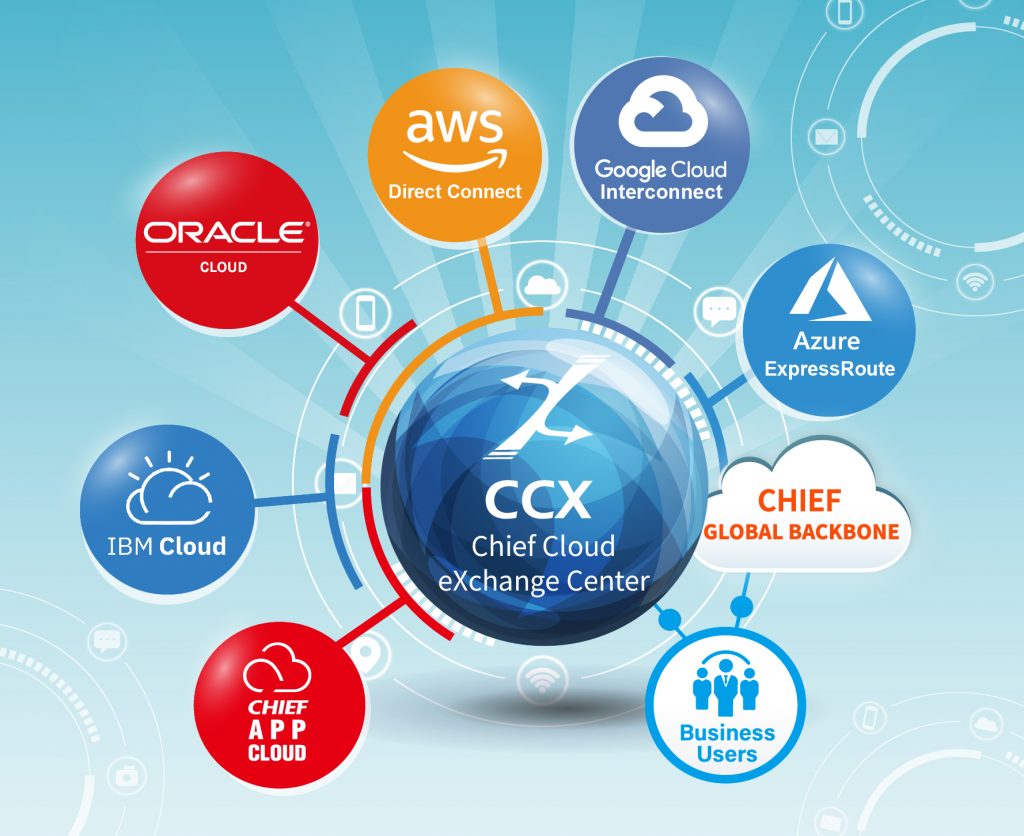
In the face of overseas expansion, fast deployment, or short-term computing needs, public cloud services are gradually surpassing traditional hardware procurement processes due to their flexibility. However, physical servers still possess characteristics of physical security and performance resilience. Chief Telecom’s Bare Metal Cloud (BMC) service provides dedicated physical servers on a rental basis. Coupled with its extensive global reach, BMC offers an optimal choice with flexibility, performance, and security.
Julius Tsai, senior director of Product Development Department, Chief Telecom, indicated that the five major features of Chief BMC service include high-performance dedicated bare metal server, cloud computing service, global coverage, flexible pricing model, and a self-service cloud portal. For industries that are actively expanding into emerging markets such as gaming, content, and media, as well as finance and healthcare industries that have disaster recovery requirements, BMC allows them to leverage cloud service and ensure control system reliability.
Massive Global Deployment of BMC Enables 30% Decrease in Latency
Chief can now deliver Bare Metal Cloud service to customers in more than 60 cities spanning 40 countries around the globe with its scale surpassing three top public cloud nodes.
Deploying PoPs in emerging markets such as Southeast Asia and South America can promptly address network performance and latency issues. BMC service offers advantages such as fast deployment within 15 minutes and a flexible subscription model, helping clients to solve the common challenges faced by self-built data centers in terms of resource underutilization or scarcity.
In brief, BMC can be regarded as a public cloud service that provides dedicated servers. Activation, billing, and deployment processes are similar to public clouds. However, in a public cloud, multiple tenants share servers and network resources. Despite virtual isolation and management by cloud providers, it is challenging to completely avoid potential interference and security risks. In contrast, BMC offers customers dedicated physical servers that provides isolated resources and exclusive access, resulting in better performance and network security.
Take well-known gaming companies as an example. While they offer services globally, it is challenging to build data centers in various locations. Most players must connect to servers located in Taiwan. However, by leveraging BMC and Chief’s global network nodes, network latency has decreased by 30%, significantly enhancing player experience in games.
According to Julius Tsai, gaming requires real-time computational needs, making computational nodes crucial. The closer players can access servers, the lower the latency. In Asia, the three top public cloud providers primarily concentrate their data centers in Hong Kong, Singapore, and Tokyo. Players from other countries still need to access services via submarine cables. However, with BMC’s service nodes extending into emerging countries like Indonesia, Vietnam, and the Philippines, local players can now enjoy optimal experiences without going overseas, making BMC an ideal solution for businesses actively expanding into emerging markets.
A Single Point of Contact Service Reduces TCO by 30% to 50% for Overseas Deployment
Based on market research, customer feedback, and operational experience, Chief’s BMC service is built on Intel Xeon technology architecture. There are three specifications:
- S – Series: Designed to handle web pages and low IOPS requirements.
- M – Series: Supports heavy loads and access requirements.
- L – Series: Tailored for machine learning, extensive computation, or large-scale storage needs.
On top of three standard specifications, BMC also provides customized spaces for project collaboration to meet unique customer requirements. Compared to public clouds which offer multiple choices, Chief’s BMC service provides greater flexibility by accommodating individual customer-specific specifications.
Julius Tsai said that Chief has excellent collaborative relationships with global supply chains and possesses flexible scheduling capabilities. Whether in terms of cost or time, Chief has more advantages than customers building in-house. Additionally, through Chief, as a single point of contact, it is more efficient than contacting local vendors one by one by customers themselves, especially in emerging countries where handling local complexities can be challenging.
Compared to self-built data centers overseas, which involve costs such as cabinet rental, technical manpower allocation, network connections, and contacting with local venders, adopting BMC can save at least 30% to 50% of costs. Furthermore, Chief’s BMC service provides customers with a high-availability backup architecture, ensuring uninterrupted operation.
Rising Demand for Third-Location and Hybrid Cloud Due to Safe Harbor Regulations
Initially, Chief BMC service primarily targeted gaming, content, and media industries. Their common feature is that they face the global market or actively explore emerging markets. For example, Indonesia with a population of nearly 300 million, and India with a population of over 1.4 billion, are both key markets and part of BMC’s service locations.
The upcoming key customer groups are focused on the financial industry and healthcare sector. Chief’s BMC service has already been adopted by the foreign customers in these sectors, and they also have a positive outlook on the needs of Taiwanese customers. In the finance industry, driven by safe harbor policy, more and more companies are considering the practice of overseas third-location backup beyond the domestic off-site backup mechanism. BMC service offers multiple PoPs around the world to enable customers to fulfill the backup and redundancy requirements following the 3-2-1 Rule.
The financial industry places great importance on security. It tends to build its own data center and deploy applications with lower security levels on the cloud. Even so, considerations of performance and security persist. BMC’s dedicated service and SDN network can provide higher security and performance compared to traditional IaaS public cloud services.
Julius Tsai stated that whether in financial or healthcare industry, substantial and long-standing on-premises infrastructure exists. Even when moving to the cloud, how to integrate with on-premises systems remains crucial. Chief’s network backbone can directly connect to the clients’ on-premises data centers or private clouds. Clients can also leverage CCX to securely access BMC service. BMC can become an extension of clients’ data centers. Whether for resource expansion, backup and redundancy, or extending overseas points, all these functions can be integrated into a single network architecture.
Therefore, the clients using BMC service can enjoy complete advantages from ground to the cloud. This includes deploying a global SDN backbone network architecture that interconnects and accesses various services provided by Chief, such as IDC, network, CCX, and VPN services. Leveraging Chief’s integrated platform, it assists in building a complete global service that integrates on-premises, cloud, and network, catering to various application scenarios for customers.





